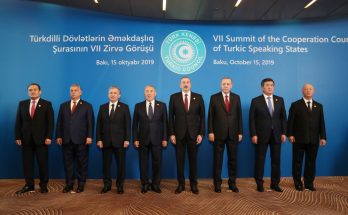
On 16 June 2015, the Grand Chamber of the European Court of Human Rights announced its judgment (Merits) on the case of Chiragov and others v. Armenia (Application no. 13216/05), the Azerbaijani foreign ministry said June 17.
The case originated in an application against the Republic of Armenia lodged with the Court on 6 April 2005 by six Azerbaijani nationals forcibly displaced from the occupied Lachin district of Azerbaijan during the Armenian aggression.
Accordingly, the conclusion must be that due to its initial and continuing aggression against Azerbaijan and military occupation of its internationally recognized territory (Nagorno-Karabakh and the surrounding areas), expulsion of hundreds of thousands of the citizens of Azerbaijan from the occupied territory and the denial of their return to their homes and access to their property in those areas, the Republic of Armenia bears full international responsibility for the breaches of international law that have occurred and continue to occur, the statement said.
Consequently, Armenia is under the obligation, in the first place, to put an end to the occupation of the territories of Azerbaijan and to withdraw immediately, completely and unconditionally its armed forces from these territories, the ministry said.
The implementation of that obligation, which would create necessary conditions for the return of Azerbaijani internally displaced persons, can in no way be considered or introduced as a compromise and, a fortiori, used as a bargaining chip in the conflict settlement process.
A key element of State responsibility, and one particularly significant for present purposes, is the obligation to cease violations, to offer appropriate assurances and guarantees that they will not recur and to provide full reparation for injury, the document said.
The Court ruled in favor of the applicants, recognizing continuing violations by Armenia of a number of their rights under the Convention for the Protection of Human Rights and Fundamental Freedoms, namely, those relating to the protection of property (Article 1 of Protocol No. 1), the right to respect for private and family life (Article 8 of the Convention) and the right to an effective remedy (Article 13 of the Convention).
The conflict between the two South Caucasus countries began in 1988 when Armenia made territorial claims against Azerbaijan. As a result of the ensuing war, in 1992 Armenian armed forces occupied 20 percent of Azerbaijan, including the Nagorno-Karabakh region and seven surrounding districts.
The two countries signed a ceasefire agreement in 1994. The co-chairs of the OSCE Minsk Group, Russia, France and the US are currently holding peace negotiations. Armenia has not yet implemented the UN Security Council’s four resolutions on the liberation of the Nagorno-Karabakh and the surrounding regions.
/Trend/




